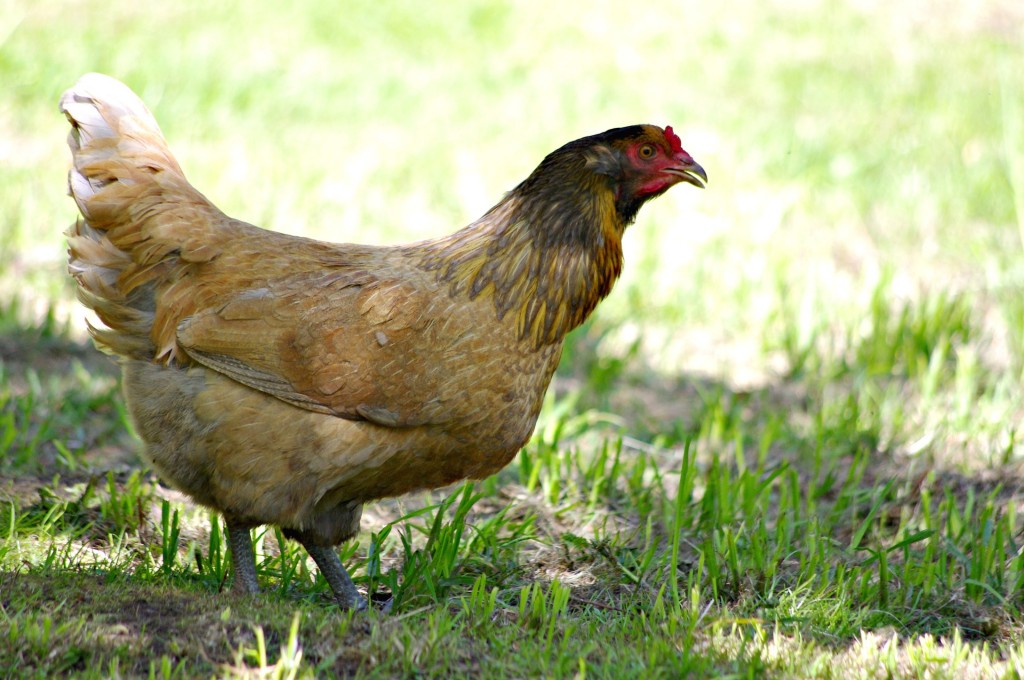There is more to raising a few chickens than you would think some days. There is the cleaning out the coop (blech), daily watering and feeding, as well as general nurturing and affection (yes, these birds do need this) but most importantly, it is keeping your eyes open for stuff that goes wrong. Stuff like Listeriosis in chickens, a strain of meningitis.
We lost 2 young chicks this summer and then 2 mature hens as well and while that isn’t a huge % of our flock, it was enough to make us explore.
We sent one chicken in for a post-mortem and the results came back concerning. Our chickens had an outbreak of Listeriosis.
Listeriosis in chickens, which can cause meningitis in people (and chickens)
Time to freak out.
For 10 days while I was waiting for the diagnosis I tried to dance around the thought of what we would do if the only option was to cull our flock. To destroy all the little souls we had raised, one by one, and have to start fresh?
Sleepless nights, and my body on extreme stress alert.
After the results arrived we had another weekend where we were waiting for the treatment plan (and is there is a treatment plan for 40 chickens?) The morning it came in we had a list of “fun” summer activities to do while hubby was at work. The list was quickly struck, and the kids and I took off to the vet for our medication.
Oral antibiotics for the entire flock was the plan, but also on the list was to sanitize the entire area. The bacteria can live on top of soil, so not only did we have a coop to scrub, but also an outdoor yard.
The chickens were set to range in the meadow and I went to work. The coop was scrubbed (yes scrubbed) clean, all the nesting boxes, floors, walls, and roosts. The bedding was set on the burn pile.
Hosed down and left to dry in the sunshine, we set to work on the outdoor yard. The top few inches of soil were hard raked and then removed. All of the perches and bits in the yard were taken out and scrubbed down. Food and water systems were washed in hot soapy water.
And then we opened the bag of Diatomaceous Earth.
The DE was spread over the entire interior of the coop. All the perches, boxes and walls. The floors was dusted, as were the window ledges. While the DE doesn’t kill the bacteria, it was a damn good time to make sure NOTHING would live in the coop!
The yard was dusted, as were the chickens. Everyone was sent back inside to explore and given ONLY their medicated water and food to eat.
All the smaller chickens were underweight so we topped up their diet with plain yogurt and oats, hoping to pack on a few pounds. Because of the antibiotics, all the eggs were tossed for 2 weeks.
We had one hen, an Aracauna, that seemed to have contracted the disease the day we got the medication. Marmalade (her name) would just sit on the perch, eyes closed, not eating or drinking.
In our adult hens this is how the listeria presented (as meningitis – brain lesions) The Hens, without food or water (or the energy to live) just gave up.
The younger chicks presented with a twisted neck, which eventually caused them to be unable to walk (and we ‘assisted” them to their death)
But, I was done losing chickens.
So Marmalade needed to live. I hand fed her a mixture of plain yogurt, ground hens scratch and the antibiotic for 2 weeks. Twice a day she was fed through a syringe, small bits at a time.
After the two weeks she showed some improvement, and after contacting our vet we were told to give her a few more days to see if it continued. With the listeria presenting as meningitis, the hen actually gets brain lesions. With the disease “gone” it takes some time for the lesions and the swelling to reduce.
After three weeks she was eating on her own. After 5 she was back to her regular self, although a little more passive. 3 months later she still isn’t laying. but her weight is still down (and we are in a fall moult) And honestly, whether she lays or not, it was nice to know that we could actually bring a hen back from near death.
The whole experience was terrifying and forced us to take a good look at WHERE our flock may have gotten the infection. Listeria is present on many fresh foods, and can also be transmitted by wild birds who access the coop yard, or even the free range area. We had also moved onto our property 4 months before, so there is a chance that the bacteria was present from something the previous owner had done.
We didn’t just treat the chicken yard, but also the whole meadow they ranged on. 12 yards of sand was dumped and re-topped. We looked at the listeriosis in the hens as a canary in the cole mine. . . if there was bacteria on our property where our kids were playing, we wanted it treated!
We were thankful that we chose to have the one hen checked, and thankful that we allowed the testing to go beyond basic. Two of our hens we lost were very special, but thankfully we didn’t need to manually cull our flock.
Pets, or farm animals need us to take the time to watch their behaviour and see if anything is wrong. Listeriosis is extremely uncommon in backyard chickens (or at least not commonly diagnosed) but is easily treatable. If you have hens showing signs of “depression” (and yes, as lame as it sounds, that’s how they define it) or young chickens with a sudden twisted neck, take the time to get it checked and dealt with properly. You could save your entire flock if you do.
Our flock is healthy now, and putting on weight. Our eggs are great and there is no disease in our coop (or outside) but we are vigilant about watching out for it.
UPDATE: JAN 2015.
This same chicken who was ill was healthy for a period of time. She was active and laying and eventually turned broody on us this winter.
We did not allow her to hatch, and after 4 weeks she broke her brood, but was underweight. It seemed as if the meningitis “affects” but not disease returned at this time. She stopped eating and drinking and would stand with her eyes clothes. We attempted to feed and medicate her again, but after 3 days she went missing and was not found. We believe she went off and died in our forested property.
Would I medicate again and go through this process? Yes. To me the effort it always worth the chance that it will work.

